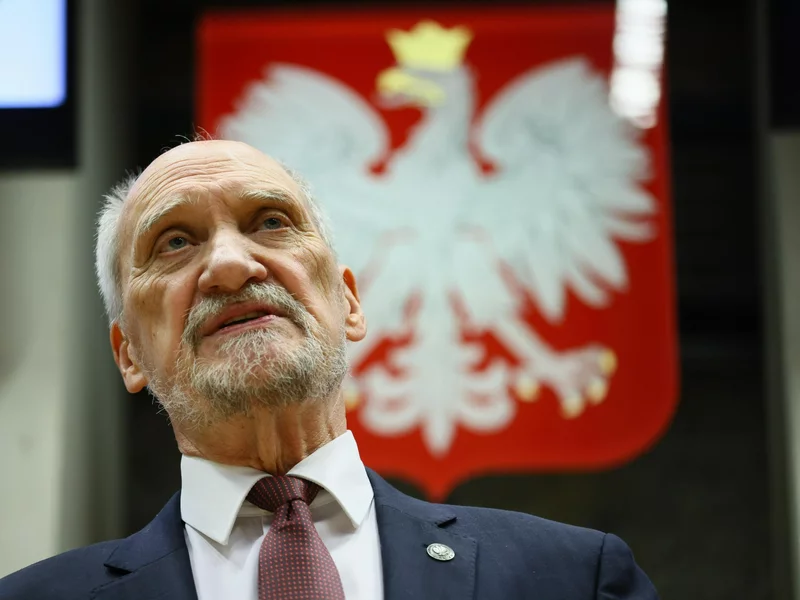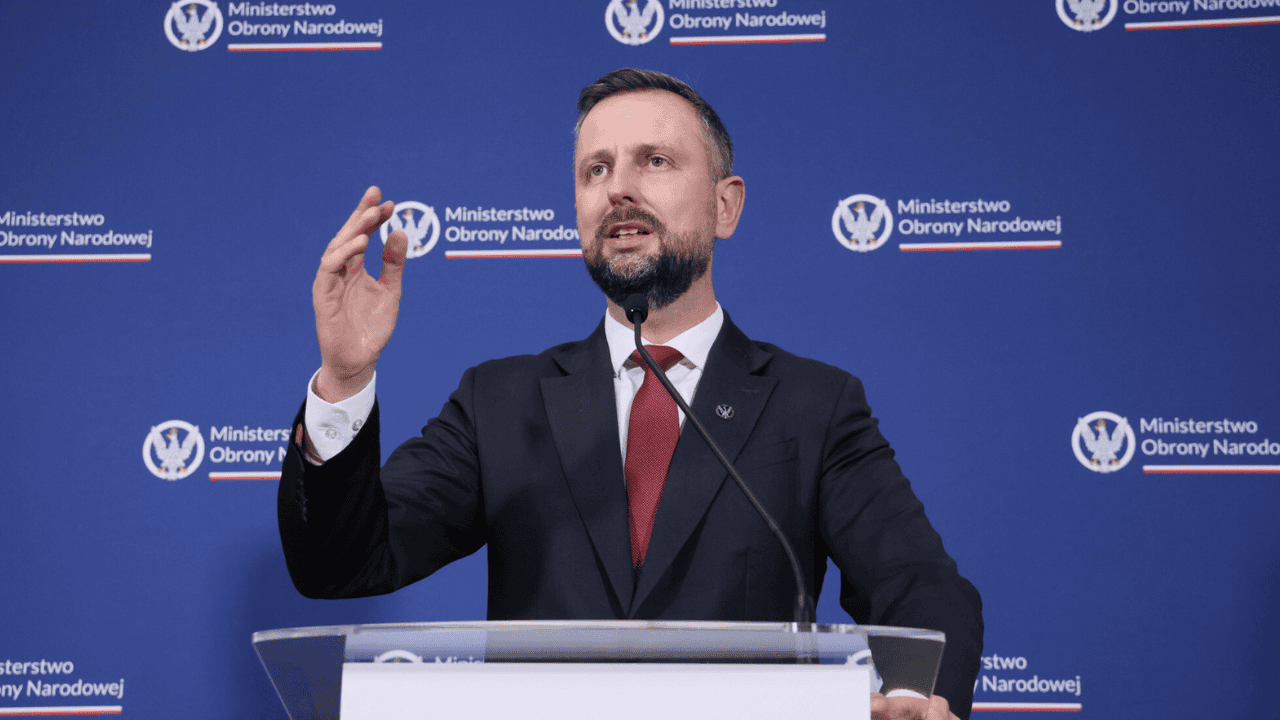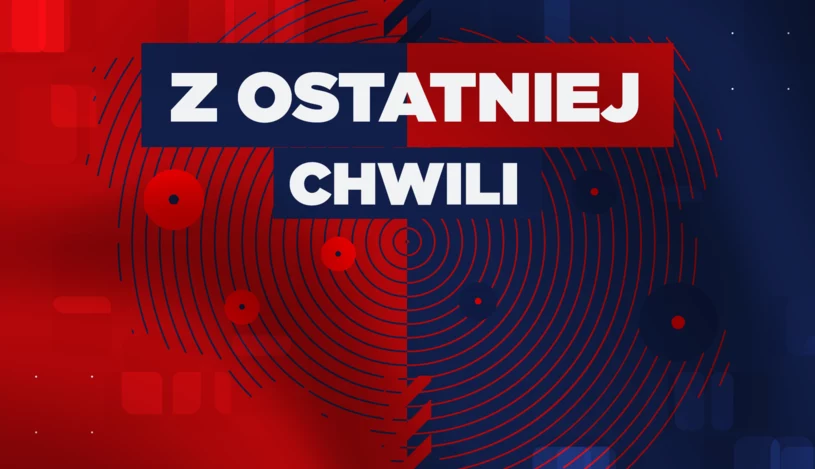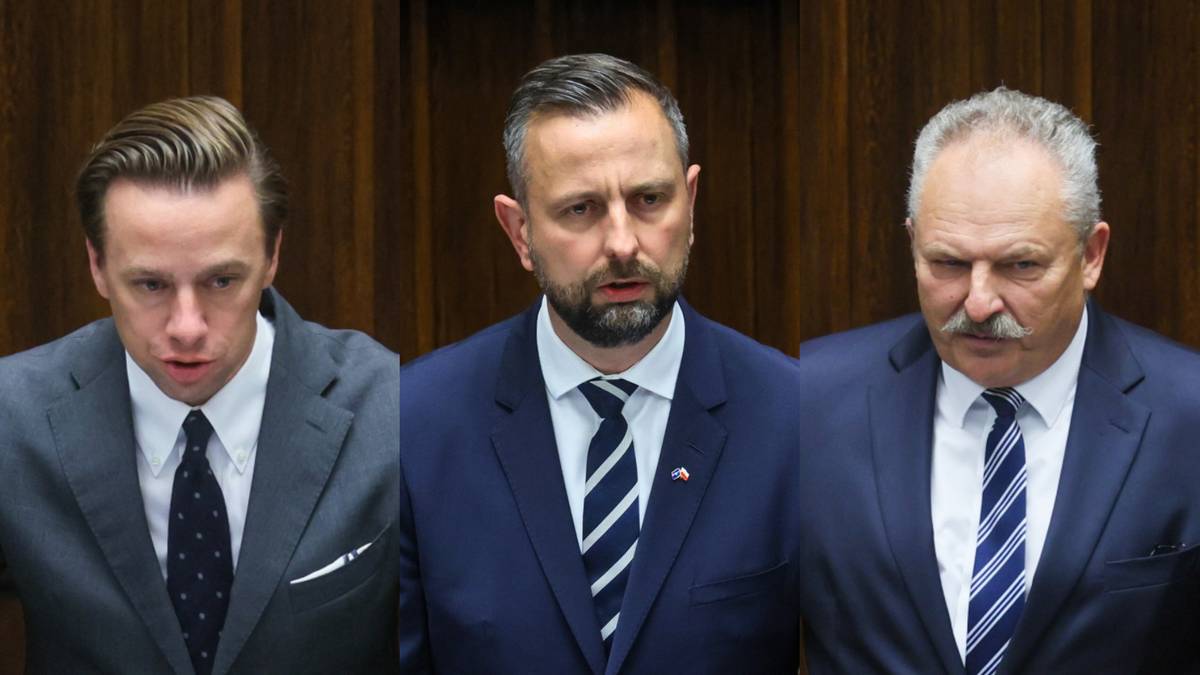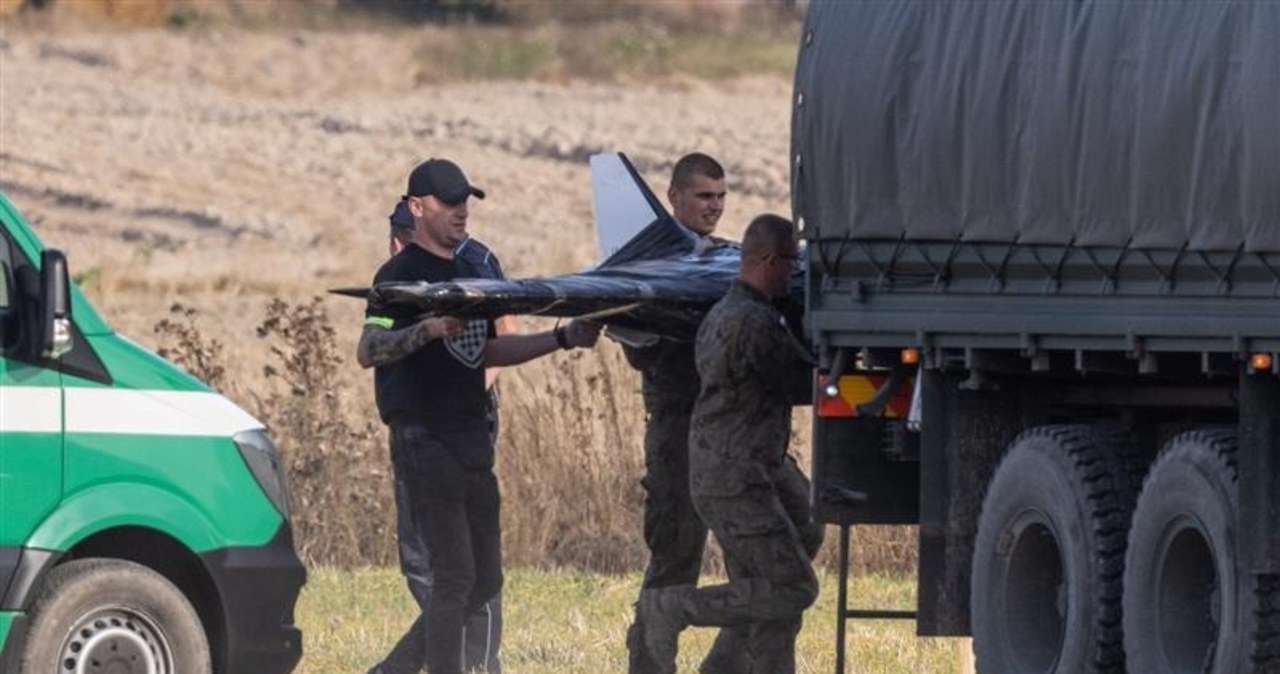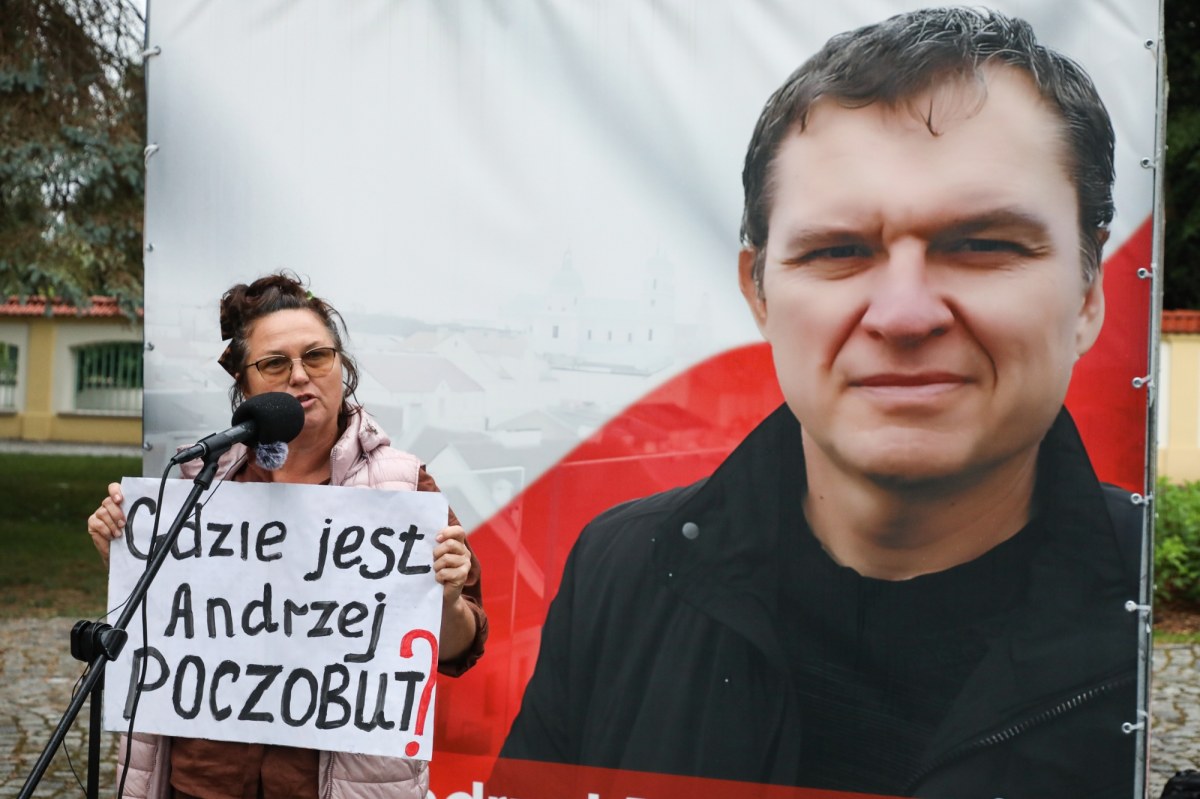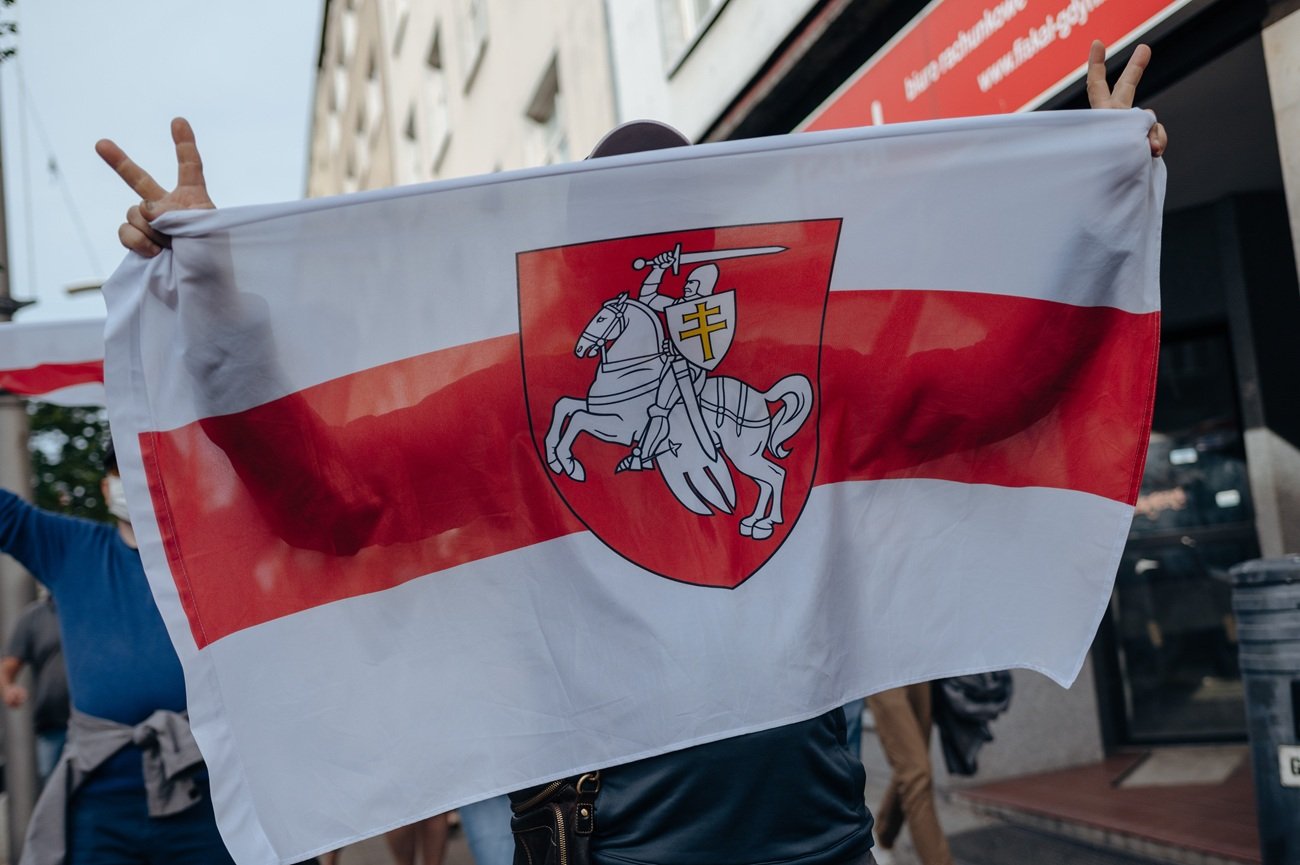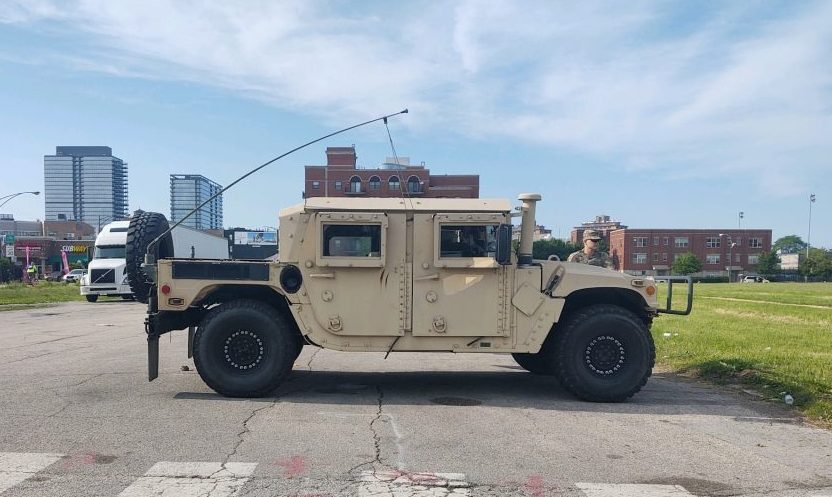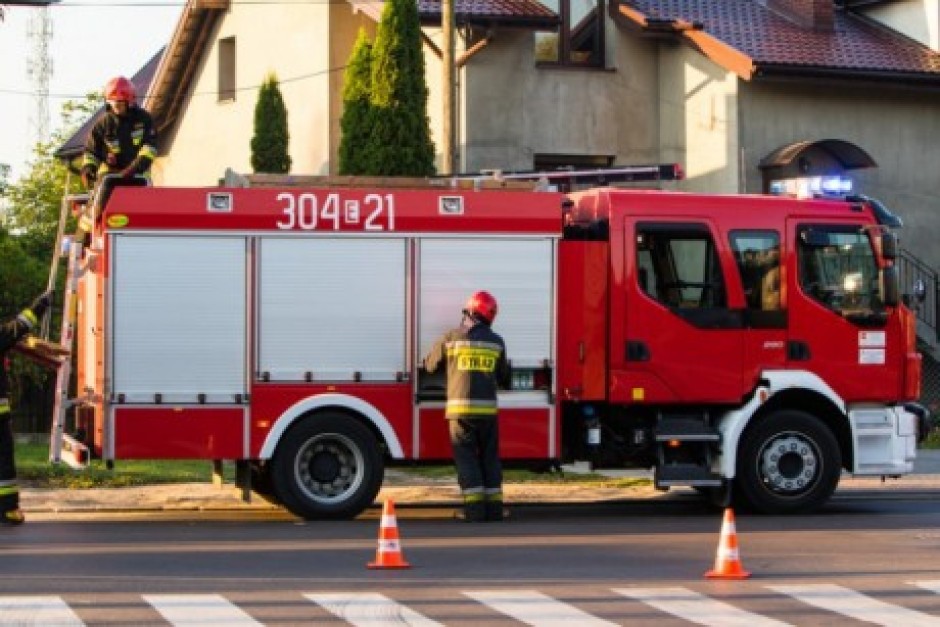1. Introduction to the problem
The author of this text, together with Prof. Witold Modzelewski, has a satisfaction today, but it is simply a sad satisfaction. We were both right to say for a long time that the Polish east policy would end in defeat – and it ended in defeat. The Polish-Ukrainian alliance has broken down and everything indicates that there will be no relationship between Warsaw and Kiev, due to the fact that Kiev as a strategical ally in Europe chose not Warsaw, but the dominant over our continent Berlin. However, it is hard to talk of our large joy at the fact that we were right about the misdirection of Polish east policy, since Poland received terrible whips in global relations. Personally, I would alternatively be mistaken as an analyst if only my country had succeeded against my predictions.
Together with Prof. Witold Modzelewski from the very beginning, we expressed deep skepticism about the anticipation of establishing and maintaining a large Polish-Ukrainian alliance, and more honestly, skepticism about Polish abroad policy in the east section, characterized by extremist anti-Russianism. For this reason, I have heard many times or read about myself that I am a “Russian onuca”, “putin’s agent”, etc. I find it hard to talk for Prof. Modzelewski, due to the fact that I did not talk to him about this, but I will not be amazed if he was likewise treated by our professional patriots, who seem to be participating in any (loved) anti-Russian uprising. I did not accidentally compose all of this in the past tense, due to the fact that late – here again I will talk only about myself – abruptly I stopped being a “leap” and “agent”. From day to day from political extremist, or skeptic as to alliance with Kiev, I turned into average criticism of Ukraine. From a intellectual point of view, it is rather apparent and understandable, due to the fact that not first falling victim to falling in love without reciprocity, I am not expressing a large outrage at the Ukrainian “ingratitude” at the minute – and this word was repeated again and again in the comments of the politicians of the ruling Law and Justice.[1]. I do not know if Ukraine was "grateful" or "ungrateful" and these moral categories are of small interest to me erstwhile we talk about global relations. What happened must have happened. The fact is that the conflict between Ukraine and Poland is about no grain. Nor should he be treated in terms of gratitude-ingratitude. This conflict has an highly solid geopolitical basis and was most likely and is inactive inevitable. To be clear, it's from the map. It's not even from a hard story, but it's good for him. As favored by the Ukrainian way of conducting politics resulted from boots and impudence, but the origin of the dispute is and remains a map.
Before I present here my explanation of the causes of the breakdown of Polish east policy, I would like to point out here that my Ukrainianscepticalism was never due to historical reasons. Of course, Volyn and the massacre of Poles in 1943 took place, and her victims are inactive not honoured and buried. However, if Ukraine had denied this substance and did not want to bury them decently, and an alliance with Kiev would have been essential due to the current Polish state's ration, I would have swallowed up this ingratitude, following the motto which the cardinal had given. Armand de Richelieu had them put on cast cannons: ultima ratio regnum. However, there is no alliance, and most likely there will never be, due to the fact that the fundamental geopolitical interests of Poland and Ukraine are contradictory, and they are due to the map, which virtually pushes us on collision tracks.
So much for admission. I propose we now proceed to the analysis of what happened in our east policy. Why did Kiev and I fight about grain? Why did Volodymir Żeleński abruptly support Germany's aspirations for a permanent seat on the UN safety Council with a veto law? And what does that gotta do with the map I keep mentioning?
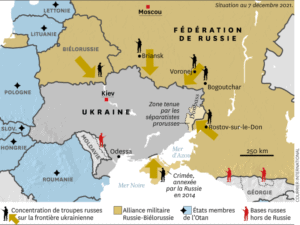
2. The geopolitical position of Ukraine
The geopolitical problem of relations between Germany, Russia, Ukraine and Poland for the first time – and unfortunately last – in a serious and factual way was analysed and lined up already in 1908, erstwhile Roman Dmowski published his work Germany, Russia and Poland. I say if Dmowski lived present and could reissue his trial, he would have titled it Germany, Russia, Ukraine and the Polish question. Therefore, as a substitute for the large Dead, I called this text.
The father of National Democracy published his trial in 1908 in a situation where any Ukrainians had only vaguely aspired to own their own state, and in colloquial language they were inactive called Rusins, possibly the Malurusins. Therefore, Dmowski omitted them in the title, and in the work itself is not yet considered the anticipation of establishing independent Ukraine and the consequences of this fact for Polish and European geopolitics are not considered. However, Rusini are no longer treated as an integral part of the Russian people, but as an cultural component that can be separated and utilized to weaken Russia in the German interest[2]. Dmowski had to take this component into account, full knowing the changes on the geopolitical map of Europe, if there were various forms of weakening of Russian statehood in the interests of Germany. As a persistent political realist and politician slow rising to the European format, he had to be aware that in the German expansionist circles the Ukrainian problem was profoundly curious and was written about it expressis verbis in published programme trials[3]. With the support and financial assistance of the German pangermen, Ukrainian nationalists issued in Vienna, in German, first "Ruthenische Revue" (1903-1905), later converted into "Ukrainische Rundschau" (1906-1918). Vienna was besides the authentic centre of the emerging Ukrainian nationalism, as Germany and Austrians wanted to usage emerging nationalisms as a weapon in the upcoming war, primarily against multinational Russia[4]. Polish politicians should not only be, but were actually aware of the existence of an informal alliance between Germany and Austro-Hungarian and Ukrainian nationalists, due to the fact that he followed the German-speaking press and the anti-Polish statements of Ukrainian nationalists there[5].
Roman Dmowski already in 1908 saw that in the close future the Ukrainian issue could be raised against Russian imperialism, and not by supporters of the thought of the peoples' right to self-determination and the expression of the national state, but by competitive imperialism, especially by Germany. He was well aware that the issue would be treated instrumentally in Berlin and Vienna. After all, Austro-Hungary itself was a multinational imperial being built on the violation of the ideas of national states. On the another hand, Germany has been striving to become an empire that governs neighboring nations, while not yet achieving this goal, they have already implemented this task at the expense of the Polish people's right to self-determination not only denying the right of Poles to have their own national state, but besides denying us the right to cultivate our own language and culture as citizens of Germany. Thus, rightly assuming that Berlin could play the Ukrainian card and the right of nations to own their own states in the future, he was convinced that this would apply only to Ukraine (by anti-Russian reason), but not Poland, as neither Berlin nor Vienna will be curious in the restitution of Poland in any form. After all, the reconstruction of Poland would open the question of delimiting its borders at the expense of Germany and Austria, which took part in the partitions of the Republic in the late 18th century, taking over its cultural territories[6].
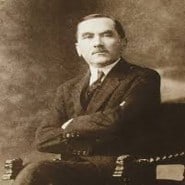
The advantage of Dmowski's dissertation from more than a century ago is that he made an highly sober analysis of the geopolitical goals of Germany. He pointed out that due to the conflict with Britain and its prevailing fleet in the oceans Berlin is not and will most likely not be able to build an overseas empire. Therefore, the German imperial thought must naturally be directed towards continental Europe, specifically towards its east part (the cost of Russia) and the Balkans. Since Dmowski did not discuss European geopolitics in his trial, but only Polish matters, he pointed to German expansion at the expense of Russia. At the same time, he rightly assumed that the weaker than Berlin Vienna would cease to be a stand-alone geopolitical player, turning into a satellite of Germany by which Germany implements its expansion towards the Balkan direction[7]. The expansion to the east of Berlin leads straight and this causes that it has 2 enemies in this direction: Poles (as a nation, due to the fact that we did not have countries in 1908), who settle lands intended for German settlers, as well as Russia, which restricts the German march east militarily and politically. Hence Dmowski's view that Germany will usage various instruments to weaken Russia, including the anticipation of its interior disintegration by fueling cultural movements and transforming cultural awareness into national consciousness, that is, making demands for having independent states.
W Germany, Russia and the Polish question However, Dmowski assumed that Berlin's aim was only to weaken Russia, so that it would then become politically and economically dependent on itself, while officially declaring its friendship. Thus he assumed that Berlin would support Ukrainian separatistism without a real effort to build Ukrainian statehood. Indeed, at the time of the outbreak of planet War I in 1914, German political elites wanted to join the Reich of legislature and Perbaltic, but from the secret government papers known to us present and at the time, it is clear that the annexation of Ukraine or the creation of quasi-independent creation on its territory was not yet mentioned.[8]. This thought comes only during planet War I, with the decline of religion in the triumph over Britain and regaining or even expanding the German colonial empire. The thought of creating a Ukrainian statehood is only a central motive for the concept of the alleged Mitteleuropa. This task envisaged the creation of a colonial empire in east Europe, covering the Balkans and the lands gained on Russia: Congress, Perbaltic, Belarus and Ukraine (without its Russian-speaking east part, present acquired by the army of the Russian Federation). Its applicable implementation was the March 1918 Brzeski Peace and German support for the creation of an independent Ukrainian state with its capital in Kiev. In April 1918, the Germans established in Kiev the alleged Hetmanat at the head of hetman Pawło Skelepadski, who managed to make an army of not many, intended to fight for the statehood of Russia: depending on the request with Russian Bolsheviks or any of the "white" generals[9].
When Dmowski realized that with the construction of Ukraine the German plans are serious, his subsequent geopolitical analyses already include the possible existence of the Ukrainian state, which is peculiarly evident in the proceeding Postwar planet and Poland (1931). Here we find analyses that today, after nearly a 100 years, hold an astonishing political reality. Father of the Endection writes:
Germany (...) understood that building a large Ukraine would put an end to powerful Russia (...). Backing in Europe and disowning its large ambitions in Western Russia, it saw that the issue of not only reducing its function in Europe, but simply its existence, as a large power, as an economically and even politically viable state[10].
In this work, having described the German effort to build the Ukrainian state in 1918, Dmowski writes:
Independent Ukraine promised itself as an economical and political subsidiary of Germany. Russia without Ukraine, without its grain, its coal and iron, would stay a large territorial state, but highly weak economically, without any view of economical independence, doomed to eternal dependence on Germany. Cut off from the Black Sea and from the Balkans, she would cease to be in charge of Turkey and the Balkan states. This area would stay entirely German domain ...[11].
On the another hand, Dmowski writes, an independent Ukraine would search to regain Lviv, which already leads her to a collision course towards Poland. The problem of the dispute over Lviv and east Galicia will not make here, however, as it does not affect contemporary problems, since the issue of Lviv has been resolved to our disadvantage, and no serious political force in Poland raises the slogans of the revision of the east borders of our country.
In conclusion, we must conclude that Roman Dmowski proves the following: Germany will do anything to awaken Ukrainian nationalism and lead to the creation of a Ukrainian state that would force Poles from the east, at the same time actually pushing Russia out of Europe and cutting it off from its Orthodox Balkan allies (Serbia and Bulgaria). Russia, on the another hand, cannot agree to the existence of a sovereign Ukraine, as this would mean pushing it out of Europe and reducing its power position.
This diagnosis is full up to date. If the words of Vladimir Putin from 2005 are frequently quoted today, “the collapse of the USSR was the largest geopolitical disaster of the 20th century”[12], this is simply a diagnosis identical to the opinion of Dmowski expressed 74 years earlier, but both statements are surely not identical in detail. For Russia Putin, the detachment of Ukraine is undoubtedly a geopolitical disaster, due to which Russia has hard access to European and Balkan policies[13]. However, this was not an economical disaster, which Dmowski wrote about, for 2 reasons:
1/ In russian times Russia discovered akin to the natural materials found in Ukraine in Siberia, and is now 1 of the main exporters of wheat, despite the deficiency of Ukrainian black earths. However, it would be hard to require Dmowski to then foretell what and in what number of natural materials Siberia is hiding.
2/ All the more decades earlier, Dmowski was not able to foretell that the alleged economical transformation in post-communist and already sovereign Ukraine would end in defeat, resulting in GDP per head in Russia being higher than in Ukraine.
There is another problem in the relation between Russia and Russia to Ukraine, which Dmowski does not compose about. This is simply a belief, common to Russians and Ukrainians, that they are heirs of the tradition of the Kiev Russian, which would be the firstfruits of their present statehood. For this reason, the Russians look at independent Ukraine just as we would look at the declaration of independency by Wielkopolska with Gniezn – as an unacceptable idea, which could not be born in the heads of secession supporters, but had to be brought to them from the outside, by a abroad agent and from abroad inspiration. Alexander Dugin, for example, is the expression of this position, which is well heard in the world.[14], but just read the article Ruś Kiev (ru. Kiyevskaya Rus) on Russian-speaking Wikipedia to see that for the Russians Kiev is the origin of their own statehood. For example, we read: “The concept Kiev Rusi was created in Russian discipline as part of more general ideas about Russia's historical fate, as an essential link in the periodicalization of its existence"[15]. In the mediate Ages, it was written that Ukraine and Russia are like “small Greece” (the right Greece) and “great Greece” (the Greek colonies in Sicily)[16]. This comparison of the outstanding French celebrated Georges Nivat adds that “Ukraine is specified a Provence, a Russian South that did not integrate with Russia as countries utilizing oc (langwedotean – A.W.) with countries utilizing oïl in France”[17].
After the defeat in 1945, Germany, for apparent reasons, did not have adequate military possible and political autonomy for decades to be able to think about the elimination of Russia (Soviet Union) from Europe. On the contrary, they were occupied first and then dependent on Washington and Moscow, divided into 2 ideologically conflicted states. However, the thought described by Dmowski about the geopolitical extermination for Russia as a consequence of its displacement from Ukraine and the creation of an independent state in Kiev did not vanish due to the fact that this solution is apparent after looking at the map of Europe. Dmowski wasn't the only 1 who saw it. Hence the poorly described theoretically, but tried to implement the concept of Józef Piłsudski, the alleged national concept based on the alliance of Warsaw and Kiev against Moscow, whose aim would be to push Russia out of Europe[18]. This view was then popularized by well-known Pilsudczyk from Kresów Jerzy Giedroć[19]. The difference between Dmowski and Piłsudski and Wolsudczyk is that the erstwhile did not believe in the anticipation of a permanent Polish-Ukrainian alliance erstwhile the Pilsudski alliance was considered obvious. However, the impact assessments on the geopolitics of the Polish existence of Ukraine were various, each of the Polish authors writing about geopolitics was aware that the creation of the Ukrainian state meant the permanent displacement of Russia from not only east Europe, but besides central and Balkan Europe..
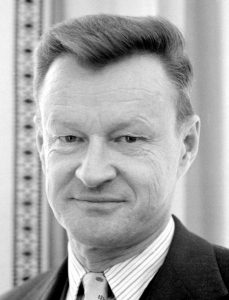
The map was analysed not only by Germans and Poles, but besides by Americans during the Cold War. Zbigniew Brzeziński wrote in Great Chessboards inactive in the times of the USSR, or before Putin's “most geopolitical catastrophe of the 20th century” (1987):
Without Ukraine, Russia ceases to be an Eurasian empire: it may inactive effort to gain imperial status, but it would then be mainly an Asian empire, constantly drawn into devastating conflicts with the late sovereign nations of Central Asia, which would not accept the failure of independency and would be supported by fellow muslim countries in the south. But if Moscow regains power over Ukraine, along with its fifty-two million citizens, immense natural wealth and access to the Black Sea, it will automatically regain its ability to become a powerful empire that binds Europe and Asia.[20].
Brzezieńk preserved his views only after the dissolution of the USSR and the uprising of Ukraine, becoming an ideology of an independent state with the capital in Kiev against Russian "demagogia" imperial[21]. This view is besides shared by Ukrainian analysts, hence the controversy among them, or should we at all costs go towards complete sovereignty towards Russia, risking war, or maintaining peace and territorial integrity at the price of geopolitical dependence on Moscow?[22]. In favour of “independants”, the case was first decided coup d’Etat in Majdan (2014), followed by the election as president of an utmost pronate politician in the form of Żelenski, resulting in the outbreak of war in February 2022.
Of course, in Russia geopolitics and politicians besides realize the importance of Ukraine not so much for the Russian economy (in the short word it would be a burden) as for Russian geopolitics, and consequently for Russia's powerful position and its physical access to European policy[23]. On the 1 hand, erstwhile we treat Russia as an expansionist state that wants to be an active player expanding its domain of influence, that is, in 1 form or another to rebuild the empire. It is simply a Polish position and, wider, Western perspective. On the another hand, it is crucial to realise that Russia feels threatened by the expansion of Western liberalism, various American-inspired "colour revolutions", etc. In this Russian perspective, Russia is simply a state defending its position against Anglo-Saxon pressure, whose attack on Ukraine is simply a preemptive, preventive war before Kiev is admitted to NATO and American troops will be deployed there. In the West, this Russian position was never understood and taken into account. The only known global relations specialist who wrote about it was John Mearsheimer[24]. And for this reason, due to the fact that he warned by supporting Ukraine's aspirations to enter NATO as a war hazard, after February 2022 he suffered many unpleasantness. It was announced as a local variant of the "Russian onus", although it did not support Russia at all, but only provided for its military counter-reaction to effort to bring Ukraine into NATO.
In conclusion, we can say that everyone – from Dmowski and Brzeziński to Putin, Dugin and Ukrainian politicians – has realised for years that the creation of independent Ukraine will mean castration of the geopolitical importance of Russia in Europe. If the young and inexperienced Ukrainian political class did not come to this view themselves, it would be adequate for it to formulate even a brief analysis of available geopolitical literature in Polish, Russian, German or English.
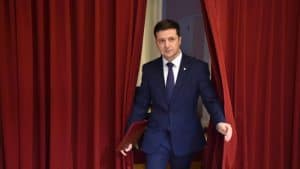
3. Why did Ukraine choose Berlin alternatively than Warsaw?
First, a grain war, followed by strong support in September 2023 by the Żeleński German aspirations to be a permanent associate of the UN safety Council (with the law of absolute veto)[25], caused a shock over Vistula. This time it was not only “ingratitude”, but simply betrayal of the task of a close alliance between Warsaw and Kiev, or possibly even the creation of any Confederate creation[26]. Unfortunately, in a typically Polish way, no appropriate analysis of this "failure" was carried out, traditionally limited to analyzing events in a moral way, i.e. in the categories of gratitude-ingratitude already known to us, which are incomprehensible to analysts of global relations and geopolitics. In this situation, the most rational analysis should be considered highly superficial, that Kiev's phrase was due to the fact that Poland had already run out of weapons which it could give Ukraine, and German magazines were only somewhat damaged[27].
If this were the case, the causes of the full defeat of the full Polish east policy from 1991 would be highly prosaic and would affect a temporary war-supply situation. I don't think so. The reason why Kiev was put on Berlin is due to the map, both political map and economical map.
Except for liberal fantasy believers that in modern global relations there is no longer an hostility and a difference of interests, as all of them are ostentatically surviving in friendship, it is apparent that reality looks different. At the minute respective centres are fighting for dominance in east Europe: Berlin, Moscow, and Warsaw, which is to any degree the protector of Washington, or, if anyone prefers specified a shot, being a victim of American politics, serving to anarch the region in the American interest. We besides have Kiev, which unexpectedly resists Russian aggression for a long time. In this situation, we have any theoretically possible alliances:
1/ A frightening script for the Polish elite of the Berlin-Moscow alliance, being a political (not necessarily military) repetition of the Ribbentrop-Molotov Pact of August 1939, where Kiev would be (forcefully) politically subordinate to Russia and deprived of eastern, Russian-speaking territories, and Warsaw would be politically and economically German.
2/ The Russian-German conflict over central Europe which Berlin would like to turn into Mitteleuropa and Russia into its own sphere of influence.
3/ Unacceptable in Poland for historical and "moral" reasons, the alliance between Warsaw and Moscow against the Germans and their Ukrainian ally.
4/ Polish-Ukrainian alliance against Moscow's alliance with Berlin. The Warsaw-Kiyów axis would be the foundation of a task of confederation of tiny countries located between Russia and Germany, called the Inter-mortal or Tri-mortal.
Poland's diplomacy since the collapse of the russian Union in 1991 powerfully advocated option 4, hoping here to support the United States and their interest in this task to block the geopolitical agreement between Western Europe and Russia and China. This concept has been presented many times by Polish political elites, peculiarly with respect to Jarosław Kaczyński and pro-American geopolitics[28]. The engine and fuel of this geopolitical structure is the utmost fear of Russia, seen as a kind of political antichrist state, additionally remaining in an open or secret alliance with almost equally devilish Germany. From the point of view of the explanation of global relations, the Ukrainian-Polish alliance is simply a concept that is included in alleged constructivism in global relations, i.e. the construction of a fresh strategy of relations and alliances between states, despite the small encouraging past and common experience[29]. And in the name of this futuristic global construction, the Polish government has spent respective tens of billions of PLN to aid Ukraine and Ukraine, free of charge it has given Ukraine a powerful mass of weapons (stock and state-of-the-art) and has settled with us respective million Ukrainian refugees maintained by the Polish taxpayer[30].
The problem is that in Kiev there was no consequence to Polish gestures akin to the “constructive” policy. On the contrary, Ukraine conducts abroad policy entirely in a paradigm called realistic. The same political realism stems from the Russian-Soviet tradition (force policy) and from the dominant nationalism in the local government spheres, straight touching on chauvinism and neo-Naziism, which in politics results in a tendency to makiawelism. The Polish political elite bears sole political work for the defeat of the Polish policy towards Ukraine, as it did not bother to admit the paradigm of global dominant relations with our east partner. alternatively of recognizing the dominance of the realistic paradigm, she naively attributed to him her own, or constructivist,.
Why the number of Ukrainian power elites led them to reject the alliance with Poland for an alliance with Germany. There are most likely no papers or analyses available on this issue, and even more memories recorded in memoirs by Ukrainian politicians. We can only follow the probable way of Ukrainian reasoning, and, in my opinion, it looked as follows:
1/ In February 2022 and subsequent months Ukraine did not have time to analyse strategical and multi-annual allies, drawing weapons and money from anyone who was willing to give or borrow her funds. During this period, Poland was highly generous erstwhile Germany maintained large abstinence. This was due to both conventional good economical cooperation with Russia and privately presented by Chancellor Olaf Scholz and his surroundings unbelief in Ukrainian ability to defend effectively and for a longer time.
2/ In 2022 (limited) Polish arms and financial resources were exhausted. At that time, the alleged epochal change took place in Germany (German. Zeitenwende), i.e. the decision was made to face the alliance of Russia and China alongside the United States. Kiev began receiving crucial military and financial support from Germany[31]. The decline of Polish capabilities has temporarily resulted in an increase in German support.
3/ In 2023, the Ukrainian political elite saw that it was not able to gain further greater benefits from cooperation with Poland, which had conflicted with Germany over the federalisation of the European Union. Hence the request to choice a strategical partner. Until now, it has been Poland remaining a United States service state in this region. To build a stand-alone European task and emanating from Washington's influence, Germany had small assets. However, Germany Zeitenwende, in an alliance with Washington was considered a more valuable ally than Poland. And since Poland and Germany remained in a deep dispute against the future of the EU, Żeleński decided to opt for Germany and against Poland, as expressed first by the conflict over cereals and then anti-Polish in his support for Germany in their aspirations for permanent membership of the UN safety Council.
Let us be honest, that this publically targeted Polish cheek testified about the primitiveism and deficiency of professionalism of the political elite from Kiev, due to the fact that it did not give Ukraine any benefit. It was possible to bet on Berlin without this ostentatiousness and without absolutely unnecessary humiliation of the PiS government. This behaviour resulted from specified insolence. Nevertheless, aside from the form in which it was done, the designation in Kiev of Berlin as the most crucial ally was a manifestation of political realism, which can only be dreamed of in the Polish ruling elites.
The alleged powerometer, which measures the strength of states, sets out many force factors. However, the most crucial of these will be: 1/ military potential, 2/ economical potential, 3/ demographic potential. This possible for Poland is as follows: economical is 0.69 trillion dollars (2022) and demographic is 38.4 million[32]; military possible qualifies us in 20th place among the armies of the world[33]. Meanwhile, Germany has the following potential: GDP $4.07 trillion (2022)[34], 83.2 million people and an army placed 25th worldwide[35]. So we see that Germany's advantage towards Poland in economical possible is almost 6 times, and in the population 2 times. We only dominate in the strength of the army, but small and with specified economical possible Germany can outrun us in this field in a fewer years. If the most crucial task of the global policy of the state is to survive, and the host countries and their neighbour, who does not recognise its borders and sovereign statehood, are to do so in particular, then, by having to choose between Poland and Germany, Ukraine has acted completely rationally, choosing an alliance with Berlin. Unprofessional and amateur was only a brazen way to break the alliance with Warsaw, which scares distant further possible partners to pact.
This is even more evident erstwhile we compare the geopolitical structure in our part of the continent with the participation of Germany and Ukraine as allies, in relation to Russia and the Ukrainian-Polish alliance planned in Warsaw:
| Category | Ukraine | Germany | UKR + Germany | Poland | UKR + Poland | Russia |
| GDP | 0,16[36] | 4,07 | 4,23 | 0.69 | 0,85 | 2.24[37] |
| Population | 38 | 83.2 | 121,2 | 38.4 | 76,4 | 143,6 |
| Military rank | 15 | 25 | No data | 20 | No data | 2 |
Source: Own development
This table shows that Russia has almost 3 times as much GDP as Poland and Ukraine together, has almost twice the population and (probably) has many times more powerful armed forces, not to mention atomic weapons. Meanwhile, the German-Ukrainian alliance has almost twice as much GDP as Russia and has almost the same population as it, but has little armed forces. Following these considerations – I apologize for repeating myself – fighting for emancipation from Moscow Kiev acted completely rationally by choosing Berlin as its strategical ally alternatively than Warsaw.
Our analysis has clearly shown that it is better to be with strong Berlin against Moscow than with weak Warsaw. That's why Kiev was eager to scope for the resources of the Polish army, depriving it of all possible weapons, after which he turned the alliances makiawelically, getting along with Berlin. As a supporter of Realpolitik I do not condemn Ukraine, on the contrary, I admire the craftsmanship of this young and inexperienced diplomacy.
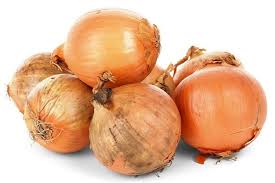
4. Summary
Here is the task of the Polish Międzymorz or Polish Jagiellońska, where Warsaw was expected to lead the primacy, turned into an old and well-known task of German Mitteleuropa. In Poland no 1 expected this, due to the fact that Polish-language media continued to sustain the story of the alleged German-Russian alliance, which continues despite the war. In this situation Ukraine seemed to have no geopolitical alternate to Poland. Yes, the Russian-German alliance existed, but until mid-2022. In 2022 in Germany, the word “word of the year” was given to the said Zeitenwende, i.e. “the breakthrough of the ages”[38]. The German elites, after hesitation over the first months of the ongoing war, announced support for Ukraine and entering a conflict with Russia-China alliance alongside the United States. This is seen by anyone browsing German portals on global issues, by Scholz and the head of the MFA Annalena Baerbock. The Polish media ignored this fact completely, mocking the old helmets which Germany donated to Ukraine erstwhile we sent modern “Hard” and “Rosomaki”.
It is hard to say why the full mainstream media did not announcement the change in German politics. most likely Polish-language media belonging to German companies did this on purpose, in consultation with German services, and the state (written) and American media so turned Poles into war with Russia and aid Ukraine said they didn't want to spoil their good humor. As a result, Polish media, as well as the Polish political elite drawing from them, did not see Zeitenwende German abroad policy, which has gone into confrontation with Russia's alliance, aims at building Mitteleuropa, whose central points are: 1/ admission of Ukraine to the EU; 2/ change of EU treaties towards a national state. That is why Kiev, at all costs wishing to escape from its dependence on Russia, paid tribute to Lena Berlin and boldly went to a confrontation with Warsaw, whose Pisan government was very reluctant. Of course, no 1 in Poland was accounted for due to this disaster, and the abroad minister did not resign.
And what don't you understand?
Adam Wielomski
Source: W. Modzelewski, Poland-Russia. Adult History, Warsaw 2023, pp. 37-62
[1] L. Grzegorczyk, She couldn't take the words. She reminded the Ukrainians of 1 thing, natemat.pl/511885, sly-reactions-on-word-zelensky-reminiscent-ukraincom-one-thing [20.09.2023]; Useful: Ukraine pushes distant the hands that aid it, newspaper.pl/news/country/Articles/Articles/9301675, example-Ukraine-rejection-rece-which-her-help.html [011.2023].
[2] Mr Dmowski, Germany, Russia and Poland [1908], in Idem, Selection of letters, fresh York 1988, p. 1, p. 163.
[3] See e.g. E. Hasse, Das deutsche Reich als Nationalstaat, München 1905, pp. 122-138.
[4] P.R. Magocsi, Vienna as a Resource for Ukrainian Studies: with peculiar mention to Galicia, ‘Harvard Ukrainian Studies’, 1979, t. 3/4, pp. 609-626; B. Chernev, The Habsburg Mobility of Ethnicity and the Ukrainian Question during the large War, in: B. Bachinger, W. Dornik, S. Lehnstaedt (ed.), Österreich-Ungarns imperiale Herausforderungen. Nationalismen und Rivalitäten im Habsburgerreich um 1900, Gottingen 2020, pp. 139-141.
[5] Mr Dmowski, Germany, Russia...p. 152.
[6] Ibid., pp. 141-142.
[7] Ibid., pp. 133-136.
[8] See unofficial scope of German territorial claims formulated by the German Government after the outbreak of the war: September Programme [1914], ‘Pro Fide Rege et Lege’, 2019, No 82, pp. 41-42.
[9] The president The German business of the Ukraine in 1918, "The Russian Review", 1941, Vol. 1, No. 1, pp. 90-105; B. Dmytryshyn. German business of the Ukraine, 1918: any fresh Evidence, ‘Études Slaves et Est-Européennes’, 1965/66, Vol. 10, No 3/4, pp. 79-92; F. Fischer, Griff nach der Weltmacht. Die Kriegsziel Politik des kaiserlichen Deutschland 1914-1918, Düsseldorf 1967, pp. 474-482.
[10] Mr Dmowski, Postwar planet and Poland [1931], in Idem, Selection of letters, op.cit., t. 4, p. 201.
[11] Ibid. p. 221.
[12]Putin: The collapse of the USSR is the biggest catastrophe of the 20th century [2005], rmf24.pl/facts/Polish/news-putin-fall-zsrr-to-biggest-catastrofa-xx-century,nId,142083#crp_state=1 [011.2023].
[13] The president The Goestragic Postion of the Russian Federation. A Powermetric Study, Siedlce 2018, pp. 33 and 167.
[14] The president Grounds for Geopolitics, Warsaw 2019 [2011], pp. 146-154.
[15]Kiyevskaya Rus, ru.wikipedia.org/wiki/ Киевская_Русь [02.11.2023]. See besides E. Borschak, Русь, Мала Росія, Україна, ‘Revue des Etudes Slaves’, 1948, t. 24, nr. 1-4, pp. 171-176; B. Delmaire, Les origins russes d’après les travaux soviétiques récents (note critique), ‘Annales’, 1974, No. 1, pp. 154-156; V. Vodoff, Rus ́ de Kiev et Russie moscovite: culture et polytique, ‘Revue des Études Slaves’, 1991, Vol. 63, No. 1, p. 7-8.
[16] G. Nivat, Kiev et Moscou: Mythe ou héritage à partager?, ‘Cahiers du Monde Russe’, 1995, Vol. 36, No. 4, p. 473.
[17] Ibid. p. 475.
[18] M. Plum, State thought of Polish socialists in 1918-1921, Kraków 1980, pp. 111-111; idem, Polish Socialist thought (1918-1948), Wrocław 1988, pp. 49-55; R. Juchnowski, Place of geopolitics in Polish political thought of the 19th and 20th centuries, Toruń 2018, pp. 229-231.
[19] The president Jerzy Giedroć, Juliusz Mieroszewski. Prolegomena and the motives of east policy, in: M. Semczyszyn, M. Zajączkowski (ed.), Get free of Ukraine. Ukrainian position of Jerzy Giedroyc and the culture of Paris, Warsaw 2014, pp. 93-103; M. Senycz, Promotion of the Ukrainian case internationally by the Paris Culture team, in: M. Semczyszyn, M. Zajączkowski (ed.), Ziedroć and Ukraine, op.cit., pp. 149-163.
[20] Z. Brzezinski, Big chessboard. The main objectives of American policy, Warsaw 1998 [1987], p. 46.
[21] Z. Brzezinski, Ukraine’s Critical function in the Post-Soviet Space, ‘Harvard Ukrainian Studies’, 1996, t. 20, pp. 4-5.
[22] Mr Eberhardt, Slavic geopolitics. The creators of Russian, Ukrainian and Czechoslovakian geopolitics and their ideological-territorial concepts, Kraków 2017, pp. 234-244.
[23] M. Siudak, Geopolitical visions of Crimea and Ukraine, ‘The Geopolitical Review’, 2016, No 18, pp. 95-96.
[24] The president Why the Ukraine Crisis is the West’s Fault: The Liberal Delusions that provoked Putin, ‘Foreign Affairs’, 2014, t. 93, nr 5, pp. 77-89; idem, Big illusion. Liberal Dreams and global Reality, Kraków 2021 [2018], pp. 265-278; idem, The Causes and Consequences of the Ukraine War, ‘Horizons’, 2022, No 21, pp. 12-27.
[25]Ukraine wants a permanent seat for Germany on the UN safety Council, basins.pl/opinie/483570/German-as-guarantor-room-Ukraine-want-for-their-place-in-rb-onz.html [02.11.2023].
[26]Błaszczak: Zelenski seems not to remember that Germany did not come with the aid of Ukraine, the paper of law.pl/news/country/Articles/Articles/9302909, the pale-zelenski-recognition-not-remember-with-future-z-p.html [02.11.2023]; "Ukraine enters alliance with Germany". Saryusz-Wolski criticises Zelenski's speech at the UN, polskieradio24.pl/130/5553/Article/3246066, ukrain-enter-in-soy-with-Germans-Saryuszwolski-criticise-exist-Zeleński-w-onz [02.11.2023].
[27] W. Szymanski, Delivering arms to Ukraine. Germany has overtaken Poland?, dw.com/en/deliveries-weapons-to-Ukraine-German-overtakes%C5%82y-polsk%C4%99/a-65656492 [02.11.2023].
[28] Law and Justice, Law and Justice Programme. Polish model of state of prosperity [2019], PDF, pp. 176, 184-185, pis.org.pl/documents [24.02.2023]; M.J. Chodakiewicz, Between Seas, Warsaw 2016 [2012 edition]; J. Bartosiak, Republic between land and sea. War and Peace, Warsaw 2018; idem, End of history, Warsaw 2020.
[29] A.K. Cianciara, European Neighbourhood Policy for Constructivism, Warsaw 2017, pp. 247-265.
[30]Poland has spent tremendous money to aid Ukraine. They're setting us up as a model., businessinsider.com.pl/economy/ile-Polish-issued money-on-help-ukrainie-quota-practice-o-vertigo-head/v1j099g [02.11.2023]; The president We know how much Poland has allocated to military aid to Ukraine, defence24.pl/war-on-Ukraine-report-special-defence24/we know-how-Polish-signed-on-help-military-for-Ukraine-defence24-news [02.11.2023].
[31] S. Meister, Kommentar: Ostpolitik Zeitenwende? Deutschland und Russlands Krieg gegen die Ukraine, bpb.de/themen/europa/russland-analysen/No-437/521584/commentar-ostpolitik-zeitenwende-deutschland-und-russlands-krieg-gegen-die-ukraine/ [09.09.2023]; The president Russischer Angriff auf die Ukraine: Zeitenwende für die euro-atlantische Sicherheit, swp-berlin.org/publication/zeitenwende-fuer-die-euro-atlantische-sicherheit [02.11.2023].
[32]Poland Review, worldbank.org/en/country/poland/overview [02.11.2023].
[33]The ranking of the world's most powerful army. How is Poland?, forbes.pl/rankings/how many-state-issues-on-arms-in-war-in-Ukraine-provoked-expenditure-how-on-tle/rd101lh [02.11.2023].
[34]GDP (current US$) – Germany, date.worldbank.org/indicator/NY.GDP.MKTP.CD?locations=DE [02.11.2023].
[35] A. Drum, Bundeswehr – a case of the armed forces of a state in which society believed in eternal peace, Defence portal.se.pl/defence policy/bundeswehra-case-strong-armoured-state-in-which-community-believe-in-eternal-peace-aa-nYzd-d5pC-Beqw.html [02.11.2023].
[36] Data on GDP and population for: Ukraine, date.worldbank.org/country/Ukraine [02.11.2023].
[37] Data on GDP and population for: Russian Federation, date.worldbank.org/country/Russian-federation [02.11.2023].
[38]"Zeitenwende" German word of the year 2022. What does it mean?, forsal.pl/lifestyles/entertainment/articles/8606610,zeitenwende-slow-year-old.html [02.11.2023].

